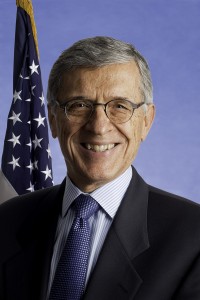FCC Votes to Reclassify Internet, Choosing Net Neutrality
Friday, February 27th, 2015February 27, 2015
Yesterday, the United States Federal Communications Commission (FCC) voted to classify the Internet as a telecommunications service. In doing so, the commission chose a set of regulations that would protect “net neutrality,” the idea that all bits of data traveling over the Internet should be treated the same, regardless of content. Title II of the 1934 Communications Act regulates telephone service to ensure that all carriers are treated equally. High-speed Internet, however, had previously been classed as an information service, not a telecommunications service.
The FCC voted for reclassification along party lines, with three Democrats in favor and two Republicans against. The reclassification applies to both wired and wireless Internet service providers (ISP’s). The vote carved out several exceptions from the Title II regulations to which telecommunications services are normally subject. For example, the FCC said it would not use its authority to set pricing for Internet services.
However, the new classification would result in a number of significant new regulations. The FCC said it would ban “fast lanes”—the practice of ISP’s charging customers more for faster access to certain kinds of content, such as streamed movies and television shows. Supporters of net neutrality have long argued that fast lanes could enable ISP’s to effectively censor speech on the Internet by throttling access to it. Under the new regulatory scheme, the FCC would also have the power to enforce protections for consumer privacy and expand Internet access to rural areas and to people with disabilities.
A number of ISP’s strongly oppose the new regulation, arguing that it is burdensome regulation intended to fix a problem that does not exist. The reclassification will likely be challenged by lawsuits, and Republicans have indicated they will seek new laws to overturn the FCC’s vote.
Other World Book articles:




